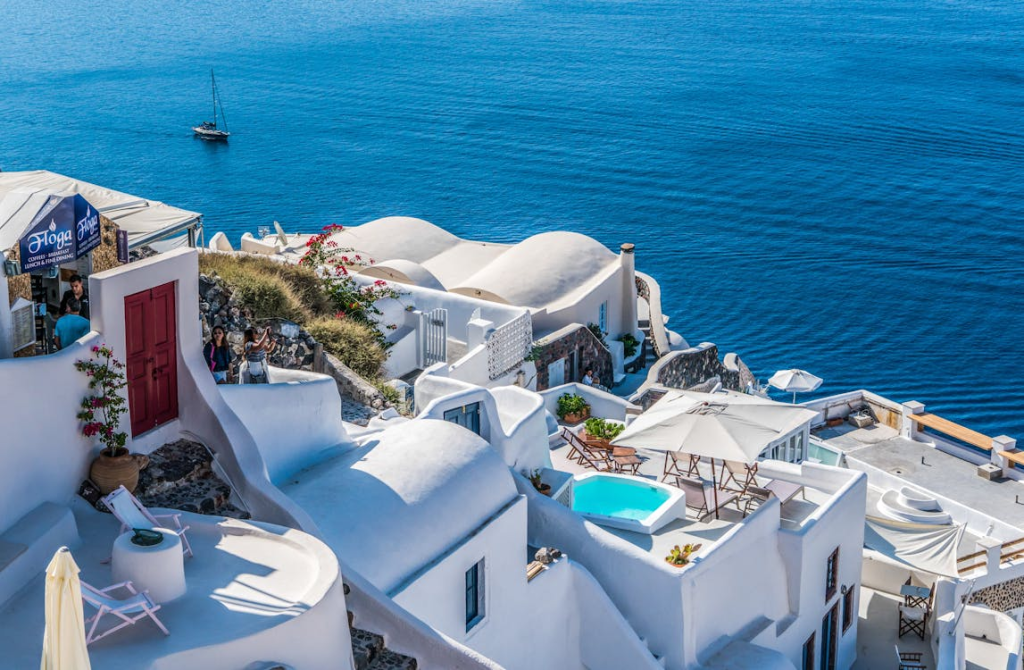The Greek hospitality climate, driven by tourism, food trends, and technology, significantly influences property sales.
Such trends drive the demand for unique real estate and, in turn, provide ways for sellers and buyers. With gentrification by high-end hospitality and greater demand for sustainable properties, hospitality, and real estate interaction are transforming the Greek property market.
Here’s how such trends enhance property value and transaction activity nationwide, meeting different buyer preferences in a competitive market.
Luxury Hospitality Drives Luxury Property Sales
The growth in boutique resorts and luxury hotels raises high-net-worth visitors, which creates a surging demand for upscale properties. Areas like Corfu and Santorini see more significant interest from investors looking for villas near isolated hospitality areas. The trend leads to gentrification, which continues to value properties due to more affluent investors’ bids for strategic locations.
You can easily sell your property in Greece with Elxis and other platforms that capture such demand. The focus of the hospitality climate towards customized experiences propels the sale of luxury properties as consumers want to replicate the lavish lifestyle offered by Greece’s best hospitality sector. sell your property in Greece with Elxis
Technology-Facilitated Hospitality Enhances Property Attractiveness
Improvements in hospitality technology, e.g., intelligent hotel systems and web-based hotel booking websites, enhance Greece’s tourism attractiveness, raising demand for properties.
Guests require smooth experiences, so hotels upgrade facilities, elevating surrounding property values. Areas with tech-innovative hotels attract high-end buyers seeking cutting-edge amenities, fueling gentrification in tourist areas like Santorini and Athens.
Property around refurbished hospitality assets commands high prices, benefiting sellers in these sought-after areas. The tech-led hospitality revolution creates a robust property market since buyers want homes in areas that boost up-to-date tourism infrastructure.
Restaurant Trends Drive Up Property Values
With a mix of old-style tavernas and contemporary gastronomy, Greece’s food culture attracts food tourists, influencing property sales. High-end restaurants in locales such as Mykonos enhance local status, attracting high-spending buyers and fuelling gentrification. Houses close to hip dining areas become highly desirable, with buyers seeking proximity to lively food destinations.
This demand drives up property prices, which favors sellers in gastronomic enclaves. As dining becomes more refined, hotels in the following foodie hotspots gain traction, opening the door to real estate prospects and sales investment in Greece’s competitive market as lifestyle-driven buyers look for them.
Tourism Expansion Fuels Demand for Short-Term Rentals
Greece’s booming tourism, powered by hospitality innovations, fuels demand for short-term rental properties. Websites like Airbnb thrive in places like Rhodes, where hospitality trends create an active rental market. Investors buy property to cater to tourists, boosting prices and catalyzing sales.
The surge spurs gentrification hotspots as high-end buyers pursue lucrative rental yields. The hospitality culture, focused on outstanding customer experiences, assures a steady demand for high-quality property. This is why Greece’s real estate stands out as the ideal destination for investors and vendors in the tourist market.
Cultural Hospitality Trends Make Property More Marketable
Greece’s tourism sector is focused on cultural experiences, including local festivals and walking tours of cultural heritage sites, and properties within culturally important areas are more desirable.
Purchasers are drawn to homes in areas like Thessaloniki, where hospitality is hospitable, and demand and prices rise accordingly. Cultural focus promotes historic district gentrification, where investors search for distinctive properties.
Sellers market homes within walking distance of cultural destinations, appealing to purchasers interested in Greece’s heritage. Because hospitality captures the culture of Greece, the property market also stands to benefit, with culturally significant properties being prime targets for sales and investment.
Endnote
Greece’s hospitality culture, which integrates innovation and tradition, strongly affects its property market. By driving demand for technologically advanced, sustainable, and culturally enriched properties, these trends enhance real estate appeal, fueling sales and gentrification.
With rising tourism and high-end hospitality, investors and sellers capitalize on rising property values, fueling a lively market for different buyers.



